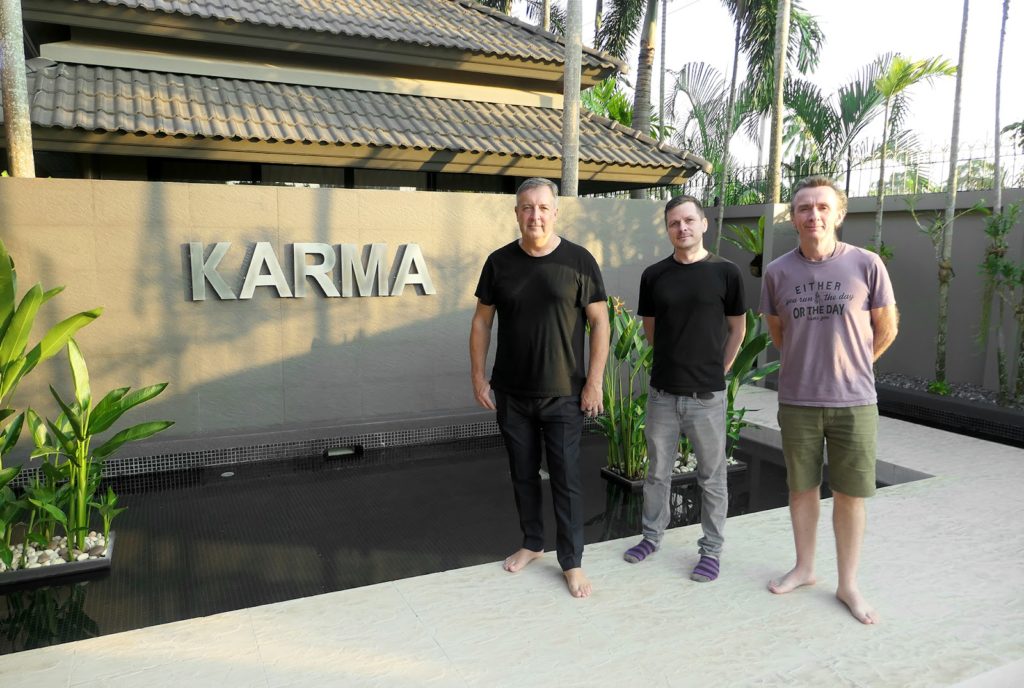KALEIDOSCOPE BKK – Music Business In Thailand!

1. Which is the current status of the music business (labels, sales, streaming, etc.) in Thailand?
I’m still quite new to Thailand and the music industry here having only moved from the UK just over a year ago, but I have been fortunate enough to do some freelance work with some of the traditional UK majors here, which has given me a bit of a crash course in the music business in Thailand. What I’d say is most distinctive is the fact that the traditional majors have a comparatively small market share here, and that the indie sector and Thai major labels dominate the landscape. That’s a very different picture to the one I’m used to looking at. As a result, there are a lot of fantastic artists operating domestically who maybe lack access to the traditional route to international success, which is perhaps why some of my favourite Thai artists haven’t yet broken markets in the US and UK in the way I wish they would!
2. What about the current business opportunities to establish a label in Thailand?
I think it’s a great time to establish a label here – in fact, Sony have just began that process themselves, so I can’t be too far wrong about that I guess! There’s a lot of great music being made here, and I still believe that labels have an important role to play in helping artists get heard, despite the continued growth of the self-releasing artist sector and all of its merits. I think this is particularly true of this region at the moment, though – there’s a lot of eyes on music being made in Asia, with a lot of that attention being generated by K-Pop artists. But Thailand has a diverse music scene that is just as capable of making an international impact.
3. Please let us know about the formation of Kaleidoscope BKK.
I think we initially talked about starting a label quite some time ago, when I first moved to Thailand. I was lucky to already know Andy Griffin, having met him here in Bangkok due to a mutual musical connection – Kaleidoscope (NCL) began with an artist called SHIELDS, who were previously with Riverman Management, where Andy (G) also works. Andy and I stayed in touch over the years until I moved here at the end of 2020. He then introduced me to Chris Craker at Karma Sound Studios, and at some point over a few drinks the idea of forming a label was raised. Because of the disruption caused by Covid, I found myself with a bit more time on my hands and persuaded Chris and Andy to give up some of their time to help me set up Kaleidoscope BKK at the end of last year.
4. Which is the mission and the goals of Kaleidoscope BKK?
Primarily, we want to build a roster of great songwriters and a catalogue of music we love. But, obviously, there are business goals too! The main one, for me, is breaking a Thai artist internationally.
5. Are there any specific artists that you intend to approach in Thailand or abroad?
Well, we’ve actually already found an artist to work with – we’ll be making an announcement about that over the next couple of weeks! Our main focus is on new artists – artists who are just starting out, who possibly haven’t self-released anything as yet but who are sitting on some fantastic demos. We’d like to help them make those all-important first steps.
6. Are you going to offer 360 degrees type of contracts to cover the whole activity of the artists or do you plan to focus on a specific sector of the music business?
The aim is to be flexible with our deal structure and to build good, long-term working relationships with the artists on our roster. That might mean that sometimes we’re simply management for an artist, at other times it might be that we’re just acting as their record label, and at times it could be both. The plan is to build the right team around each artist and allow them to have a long, financially viable career in the industry over a period of decades rather than years.
7. The main staff of the company comes from Great Britain, how are you going to combine the British mode of thought with the business mode of thought in Thailand?
Chris and Andy (G) have been living in Thailand for quite some time already, so have been working with Thai artists for years. I’m still relatively new, so learning the differences in the business cultures as I go. As the company develops we’ll eventually morph into a largely Thai team, and that’ll obviously give us greater insight into any cultural differences. What I would say, though, is that my experience with everyone in the music industry here has been incredible – on both the artist and industry sides – and there’s no shortage of people who have expressed willingness to pass on advice and guidance.
8. What are the main reasons that an artist should choose your label to establish a career?
We’re hoping to offer something which is focused on a long-term, sustainable career in music. Of course, that’s not necessarily unique for labels, but there’s definitely been plenty of examples of short-term signings from labels over the years where they’re trying to capitalise on a particular sound or the latest social media trend. That’s fine for a certain business model, but I’m looking at building relationships that might last a working lifetime, not just a few years or until a certain trend has passed. That’s one of the reasons we have created a kind of share structure in the label for our artists, where we’re ring-fencing 25% of the label’s profits for dividend payments to the artists (on top of any royalties they earn from their own music). The hope is that this encourages them to consider Kaleidoscope BKK as a long-term home, where their continued hard work and creativity literally and figuratively pays dividends. We want the roster to elevate each other, commercially and creatively.
9. Are you targeting already established artists or newcomers as well?
Definitely newcomers at the moment. There are, of course, some amazing established artists here in Thailand that I’ve either already been lucky enough to work with or who I would love to work with one day. However, they’re typically already signed to a label, have a manager, etc., so it’s just not something we can do right now.
10. How do you plan to deal with the physical vs digital music sales issue?
It’s an interesting one, and the market research I’ve done here suggests that physical sales in Thailand presents some unique challenges. For me, there’s a ‘right time’ to incorporate physical releases into an artist’s career, and when we get there with our artists then it’ll become a live option. In the short term, though, we’ll be focusing on building an audience on the DSPs, particularly while covid still prevents new artists from really being able to build an audience in real life at shows (where we’d normally be able to sell physical records too!).
11. There is a lot of discussion about music publishing companies buying catalogues of major artists, do you have any plans about joining this type of business?
Not as a buyer, for sure – we don’t have hundreds of millions of dollars to acquire established catalogue, so it’s not an option! The hope would be that we can build this kind of catalogue with our artists so that they’re in a great position should they choose to sell. Publishing rights are, for me, the rights that really hold the long-term value for an artist, so they’re also the rights that they should hold onto as much as possible of for as long as they can, until the right deal comes along.
12. How could an artist approach your label?
If an artist wants to send us some music, they can go to our website – www.kaleidoscopebkk.com – and fill out a short form and send us a link to listen to it. We have a listening session every few weeks, or more often if there are a lot of submissions, and if we like the tracks then we reach out to see if there’s anything we can work on together.


